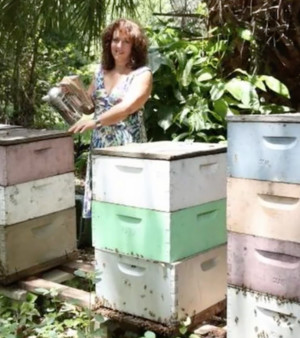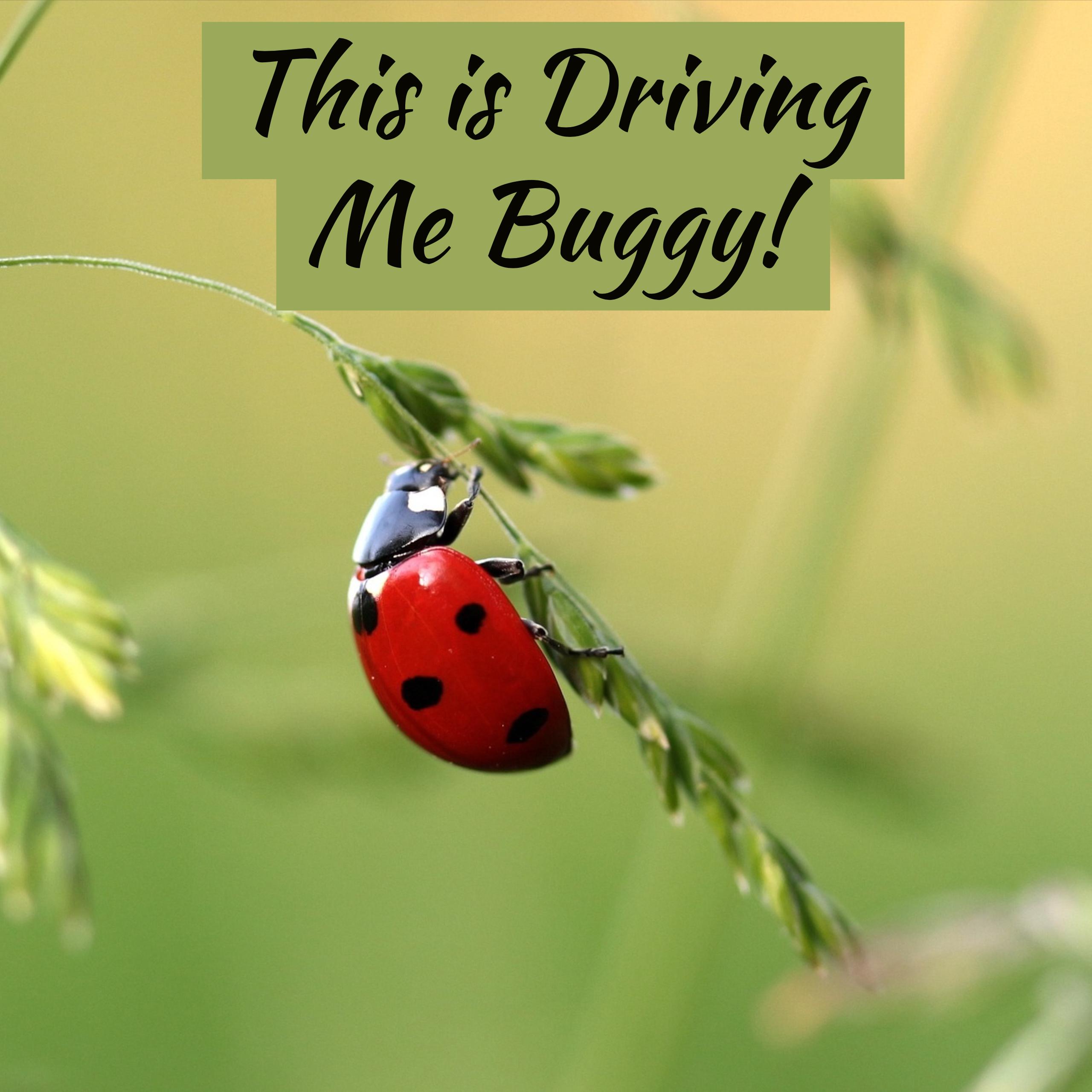22 Feb Fri 2019
This is Driving Me Buggy!
http://www.panna.org/blog/decline-insects-and-what-it-means
I was just this morning having a conversation with my husband over coffee, about bugs. When we first started keeping bees, of course I loved our bees! But I realized that I didn't love other insects so much. I wondered, "Do I just love the bees because they feed me?" That seemed so self-centered! The hypocrisy was self-evident. And so over the years I made a point to really notice my little six-legged brothers and sisters, and learned to respect and even love them! Yes, it's easier to love dragon flies and ladybugs and other cute, pretty ones. But over time I've learned to view most of them with affection. I still have a bit of an issue with palmetto bugs. It's hard to love 4" giant roaches who fly at you when you turn on the light in the middle of the night. But I'm working on it! At least when I swat them with a broom I aim to stun, not maim, and apologize profusely as I sweep them out into the night, to have another chance at life.
I've even learned to share. When I pick a papaya, or some pigeon peas that we've raised, and I spot some other creatures munching down, I no longer discard it with an "eeeyyoooooo". I remove the crawly part and either compost it or share it with my chickens. And the rest is ours. There's plenty for everyone!
So with my new-found appreciation of those other species I share my environment with, I was authentically appalled when I saw this article this morning, "The decline of insects and what it means".
You can find it here: http://www.panna.org/blog/decline-insects-and-what-it-means
Here's what they have to say!
The news over the past few weeks has been riddled with headlines like “Plummeting insect numbers ‘threaten collapse of nature’,” “Monarch butterflies are going extinct,” and “The insect apocalypse is here.” If it sounds bad, that’s because it is.
You probably know that bees and other pollinators are in trouble for several reasons — including increased overall pathogen loads, poor nutrition, habitat loss and pesticide exposure.
But these alarm bells over the broader state of emergency that insects are facing underscore the fact that yes, bees and other pollinators are in trouble. But they aren’t the only insects crucial to keeping an ecological balance, nor are they the only insects at risk.
The decline of the monarch
While honey bees are the most commonly discussed pollinator endangered by pesticide exposure, there is a very wide range of pollinators beyond honey bees — including about 4,000 types of bees, butterflies, bats and birds — that can be impacted by agricultural chemicals.
This year, the Xerces Society for Invertebrate Conservation reported that California’s monarch butterfly numbers are at an all-time low, declining more than 85 percent from 2017. And this massive drop comes after years of decline; 97 percent of monarch butterflies have already disappeared since the 1980s.
Scientists say the monarchs are threatened by pesticides, herbicides, and the destruction of butterflies’ milkweed habitat along their migratory route. Climate change is also a factor, with carbon dioxide from car and factory exhaust reducing a natural toxin in milkweed that feeding caterpillars use to fight parasites.
Where are the bugs?
Beyond the monarch news, another recent study has warned that insect populations are declining worldwide due to pesticide use and other factors, with a potentially catastrophic effect on the planet. The study warns that more than 40% of insect species could become extinct in the next few decades.
While insects are routinely depicted as mildly annoying at best and a downright plague at worst, they make up around 70% of all animal species and serve as the structural and functional base of many of the world’s ecosystems. Until now, the broad conversation around endangered species has largely focused on vertebrate species, but entomologist Don Sands shares that insects are “the small creatures that run the world.”
The decline of even one species of insect could have dire consequences for food and farming: "If we don't have insects as moderators of other pest populations, we have insect populations that flare up and ruin crops and make them difficult to grow.”
Immediate action needed
Experts recommend taking radical and immediate action to prevent large scale insect extinction. These include overhauling existing agricultural methods. In particular, we need a serious reduction in pesticide use replaced with more sustainable, ecologically-based practices.
Integrated pest management is one such approach to sustainably managing insects, as it focuses on prevention rather than treatment, and uses environmentally friendly options to safeguard crops. The goal is not to eliminate insect pests entirely, but to keep their numbers at a point to which they no longer cause a problem.
Unless we change how we produce food, and move away from chemical pest management more broadly, we’ll be in big trouble. This shift in conversation around the importance of insects is an important first step.
####
The Pesticide Action Network is so active and I appreciate their efforts. You should check them out and follow them!


